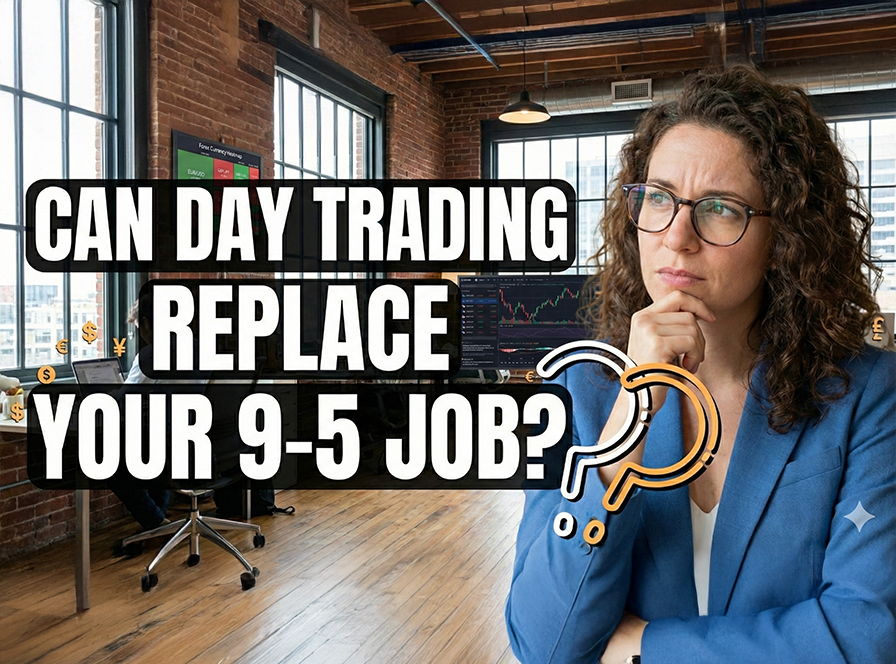Influencers Show the Lifestyle, Not the Process
Most of what you see online is just the highlight reel. Influencers rarely show:
-
the years of learning
-
the nights spent backtesting
-
the painful losing streaks
-
the psychological pressure
-
the discipline required
-
the capital needed to trade safely
What you see is the “end result,” not the story behind it. Real traders go through ups and downs before achieving consistency.
Trading Requires Discipline, Structure, and Realistic Expectations
To trade full-time, you need the same level of discipline you would have in any demanding career.
A serious trader follows a routine, sets clear goals, and follows risk management with zero compromise.
Without discipline, trading becomes gambling.
And gambling never leads to financial freedom.
Capital Matters More Than Most People Realise
One of the biggest misconceptions is believing that a small account can generate a full-time income. Many new traders think USD 100 or USD 200 is enough to make USD 5,000 a month.
This is not realistic.
If your monthly target is USD 5,000, and you aim for a sustainable 5 percent monthly growth, then:
5 percent = USD 5,000
Required capital = around USD 100,000
A healthy trading income depends heavily on capital.
Small accounts can grow, but they do not replace a stable salary quickly.
Trading Has Risks Many People Are Not Prepared For
Trading is one of the few careers where you can lose money faster than you earn it. Many beginners are not mentally ready for:
-
losing streaks
-
unexpected market volatility
-
emotional pressure
-
drawdowns
-
fear and greed
The market will test your psychology more than your technical skills.
9–5 Jobs Also Have Risks, Just in Different Ways
Many people see trading as risky and employment as safe. But even a traditional job comes with its own uncertainties:
-
retrenchment
-
company restructuring
-
economic slowdown
-
cost-cutting
-
outsourcing and automation
No job is completely secure. The difference is that a job gives predictable income, while trading depends on performance.
A Gambling Mindset Will Destroy Your Trading Career
Many traders fail because they treat trading like a casino, not a profession.
Signs of a gambling mindset include:
-
over-leveraging
-
risking too much per trade
-
revenge trading
-
chasing losses
-
trading without a plan
-
copying random signals
-
no journaling or backtesting
Trading success comes from consistency, not luck.
Pros and Cons of Day Trading as a Full-Time Career
| Pros | Cons |
|---|---|
| You control your time and schedule | High possibility of losing money |
| No boss or office politics | Requires strong discipline and emotional control |
| Income can grow with larger capital | Income is not fixed or guaranteed |
| Market opportunities every day | Stressful and mentally demanding |
| Potential to reach financial freedom | Most beginners fail due to poor money management |
| No formal degree needed | Can feel isolating since it’s a solo activity |
Important Realities Most People Do Not Talk About
You will have losing months
Even professional traders do not win every month. Drawdowns are normal.
It takes years to become consistent
Many traders spend two to five years building skills and discipline.
Full-time trading is not suitable for everyone
Your temperament matters. Some people thrive, others break under pressure.
Bigger capital brings stability
With larger capital, you can risk less per trade and reduce emotional stress.
Your income will fluctuate
Unlike a salary, trading income can vary dramatically from month to month.
Conclusion: Can Day Trading Really Replace Your 9–5 Job?
Yes, day trading can replace your job — but only if you treat it like a profession, not a shortcut.
To trade full-time, you must have:
-
realistic capital
-
strong discipline
-
proper risk management
-
a consistent strategy
-
emotional control
-
patience to grow slowly
-
acceptance that some months will be negative
For most people, the best and safest path is to keep your job while trading part-time, build capital slowly, and only transition when you are consistently profitable.
Trading can lead to freedom, but only for those who respect the process.




